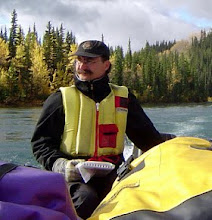The Gulf Islands off Vancouver Island, the "Mainland" for the locals have been a haven for alternative lives for most of the twentieth century. The relative isolation, rugged beauty and benign climate (at least in the dry summer) have attracted people with dreams for a different life. And even with the large seasonal cottage population this remains true for the permanent residents.
In early July I was invited to a workshop on one of the more remote of these islands. In a sun-dappled maple grove overlooking the Heron Rock beach on Hornby Island a group of students, faculty and local “back to the landers” circled their chairs to discuss the Counterculture and the Environment. The workshop was organized by Colin Coates, an island cottage owner and Canada Research Chair in Cultural Landscapes at Glendon College, York University. The local Heron Rocks Friendship Centre Society, an island group dedicated to the social justice and environmental ideals of its founder Hilary Brown generously hosted us on their lovely property on the garden draped south end of the island. Coates is also acting as editor for a forthcoming edited volume on the topic.
In early July I was invited to a workshop on one of the more remote of these islands. In a sun-dappled maple grove overlooking the Heron Rock beach on Hornby Island a group of students, faculty and local “back to the landers” circled their chairs to discuss the Counterculture and the Environment. The workshop was organized by Colin Coates, an island cottage owner and Canada Research Chair in Cultural Landscapes at Glendon College, York University. The local Heron Rocks Friendship Centre Society, an island group dedicated to the social justice and environmental ideals of its founder Hilary Brown generously hosted us on their lovely property on the garden draped south end of the island. Coates is also acting as editor for a forthcoming edited volume on the topic.
Margaret Sinclair, the island archivist, prepared an exhibit on the Hornby Island counterculture movement and the visitors submitted thirteen draft papers for discussion. Two full days of conversation on the papers considered original counterculture issues such as the fear of co-option by government and an attempt to define when and how the counterculture evidenced concern about the environment. More contemporary issues of defining the bounds of the counter culture – back to the landers, urban activists, utopians – and the object of their countering – industrialism, modernism, social injustice and war – were also addressed. The attending Hornbyites contributed their queries and offered colourful examples of their own experiences which are written into the island landscape they shared with us.
 |
| Hornby Island - Central Business District |
The workshop was an important and valuable interdisciplinary step in the production of what promises to be a most interesting book. And Hornby Island spun its magic around us all.










No comments:
Post a Comment